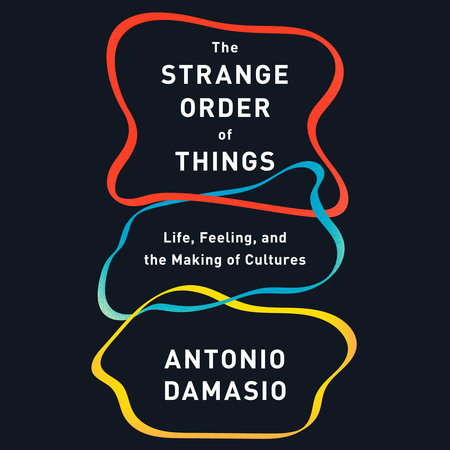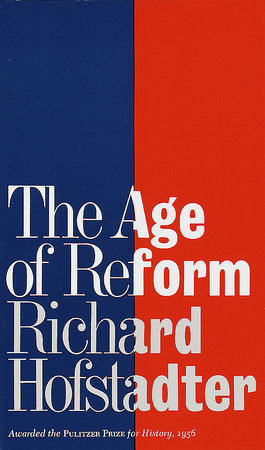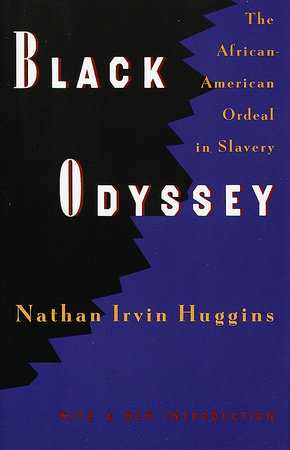“These pages make enthralling reading….It is indispensable for any psychoanalyst—and not only for psychoanalysts, of course. Damasio is the closest thing we have in the post-truth era to a great public intellectual.”—Mark Solms, Journal of the American Psychoanalytic Association
“Nietzsche would have given four cheers for this intricately argued book, which is at once scientifically rigorous and humanely accommodating, and, so far as this reviewer can judge, revolutionary….From Plato onwards, western philosophy has favoured mind over “mere” body, so that by the time we get to Descartes, the human has become hardly more than a brain stuck atop a stick, like a child’s hobbyhorse. This is the conception of humanness that Damasio wishes to dismantle. For him, as for Nietzsche, what the body feels is every bit as significant as what the mind thinks, and further, both functions are inextricably intertwined….There are echoes here too of William James, that most endearing of philosophers, as when Damasio pauses for a brief, Jamesian consideration of the anomalous fact that for all the hi-tech sophistication of modern life, we still cling to the primitive pleasure and reassurance of the domestic fireplace. And James would have been delighted by Damasio’s “everydayness”, his readiness to acknowledge the fundamental underpinnings of even our highest endeavours….But Damasio, while ever ready to salute his predecessors and peers, is wholly his own man, and The Strange Order of Things is a fresh and daring effort to identify the true spring and source of human being – of the being, in fact, of all living things – namely feeling.”—John Banville, The Guardian
“A radical revision of how we understand mind, feeling, consciousness, and the construction of cultures…. Damasio draws a visionary link between biology and social science in a fascinating investigation of homeostasis—the delicate balance that underpins our physical existence, ensures our survival, and defines our flourishing. At the heart of his inquiry is his lifelong interest in the nature of human affect—why we feel what we feel, how we use emotions to construct selfhood, what makes our intentions and our feelings so frequently contradictory, how the body and the mind conspire in the inception of emotional reality. What emerges is not an arsenal of certitudes and answers but a celebration of curiosity and a reminder that intelligent, informed speculation is how we expand the territory of knowledge by moving the boundary of the knowable further into the unknown.” —Maria Popova, Brain Pickings
“Almost a quarter century after Descartes’ Error, Antonio Damasio has done it again—created a grand exploration of the inextricable relationship between mind, body, and the source of human feelings. Along the way, Damasio takes the reader on an adventure that starts with the single-celled organisms that existed billions of years ago, proceeds through the development of nervous systems and brains, and culminates with the origin of consciousness and human cultures. Thought-provoking and highly original, this book can change the way you look at yourself, and your species.” —Leonard Mlodinow, author of Subliminal
“The Strange Order of Things is a foundational book. It provides the concepts, the language, and the knowledge to explain in an integrated framework the interplay between Nature and Culture at the heart of the human condition. Damasio unveils the codes and protocols that make humans human. After a long period of fragmentation of science, he ushers in a paradigm that reunites scientific knowledge, beyond the diversity of its fields of inquiry, around the study of the networks of the mind in communication with the networks of its biological and social existence. This is the beginning of a new scientific revolution.” —Manuel Castells, Emeritus Professor of Sociology, University of California, Berkeley
“In The Strange Order of Things, Antonio Damasio presents a new vision of what it means to be human. For too long we have thought of ourselves as rational minds inhabiting insentient mechanical bodies. Breaking with this philosophy, Damasio shows how our minds are rooted in feeling, a creation of our nervous system with an evolutionary history going back to ancient unicellular life that enables us to shape distinctively human cultures. Working out what this implies for the arts, the sciences and the human future, Damasio has given us that rarest of things, a book that can transform how we think—and feel—about ourselves.” —John Gray, author of Straw Dogs: Thoughts on Humans and Other Animals
“Following Oliver Sacks, Antonio Damasio may be the neuroscientist whose popular books have done the most to inform readers about the biological machinery in our heads, how it generates thoughts and emotions, creates a self to cling to, and a sense of transcendence to escape by…[the book] mounts his boldest argument yet for the egalitarian role of the brain.” –Kevin Berger, Nautilus
“Bold and important….Damasio, by unseating the mind from its elevated throne within the brain, delivers an onslaught on one of the core dogmas of conventional neuroscience. In his view, mind is distributed — for instance, to distant anatomical regions such as the peripheral neural networks that control organ function. Thus, different tissues in the body contribute incrementally to the mind’s function. Damasio’s vision offers a new and specific incarnation of the thesis of unified body and mind….Compelling and refreshingly original.” —Nature
“Damasio goes further than convention, calling homeostasis ‘the powerful, unsought, unspoken imperative’ that ensures an organism will both endure and prevail. More subtly, it ensures that life will be regulated within a span that is not merely compatible with survival, but also ‘conducive to flourishing, to a projection of life into the future of an organism or a species’….Breathtaking, thought-provoking, and simply fun. Agree with the author or not, the book is an enjoyable read. It will challenge many of the reader’s assumptions as well as the status quo.” —New York Journal of Books
“Damasio analyzes the continuities and the differences between natural life and human cultures, considered in their artistic, political, ethical and medical dimensions. In this effort the borders of the human do not disappear but are instead shifted, made movable. As a result, his exploration of life”s surprises becomes a stimulating and exhilarating exercise in redefining humanity itself….Damasio’s books are marvels of scientific effervescence, of conceptual invention, and, in the end, of modesty, of that sense of the limits of knowledge that only knowledge is capable of imposing….In Damasio’s thinking, to live consists of projecting yourself into life, shunning vulnerability and death, powered by a foundational force that he names homeostasis, a concept that The Strange Order of Things perfects and amplifies.” —Le Monde
“The originality of the unity proposed by Damasio is that it is rooted on the mechanisms of life itself and in particular on the conditions of its regulation, an ensemble of phenomena generally designated by a single word: homeostasis. This daring approach allows us to tease apart the links between cultures and nature and to deepen as never before the question of how the cultural process can be humanized….The Strange Order of Things bridges two contradictory readings of the elaboration of culture and human behaviors: autonomous cultural phenomena versus the consequences of natural selection conveyed by genes. For Damasio there is no need to choose between them. Damasio also refuses to reduce cultural phenomena to their biological origin, or to explain the ensemble of cultural phenomena in pure scientific terms….Intriguingly, this novel Copernican revolution in no way reduces the specificity of the human, on the contrary….Here is a new, strange and unassailable definition of life.” —Slate (France)
“For this world renowned scientist brain and body are indissociable and produce the mind jointly….Ever since his first book, Damasio has not wavered in his efforts to rehabilitate emotions and feelings within cognitive processes. In The Strange Order of Things he nails down the effort and goes well beyond….Feelings are agents of homeostasis, the powerful principle behind the regulation of life. The human saga, in the strict sense, owes a lot to a highly developed cerebral cortex, but the essentials of that saga had been germinating long before.” —Les Echos
“[Damasio] exerts a considerable influence on the fashioning of contemporary thought and on all debates concerning neurology. Damasio is one of the great thinkers of our time. A pioneer in his field.” —L’Express
“[Damasio] has introduced something baroque in a science that has been centered in one single organ, the brain. The Strange Order of Things vibrates with a baroque sensibility. The word baroque has a Portuguese origin and signifies ‘irregular pearl’. Human intelligence and its products are irregular pearls and not perfect algorithms….The Strange Order of Things is a biological interpretation of human phenomena, complex human societies included. The book expands on a proposal Damasio made following his first discoveries in the eighties: the brain is only a part of a whole and that whole is the body. Together body and brain engender feelings….Feelings are sentinels for life’s fragility, for the body’s mortality. This is how Damasio installs homeostasis at the origin of all human endeavors. We can not attain any goal without the desire to attain it, in short, without desire itself.” —Le Figaro
“This disturbing book shakes our conceptions of the mechanisms behind life, mind and culture. The author brings them together in a single perspective centered on homeostasis … It is incredibly, formidably, refreshing….This is a memorable book. A strange and ambitious book, which draws on multiple disciplines and moves across time and space to give us, very simply, a new definition of life.” —Revue Medicale Suisse
“Damasio takes his reader on an intellectual journey he has made himself, one of discovery, surprise, and insight. He explains his points thoroughly but does not simplify what is complicated. He is handy with a metaphor and avoids unnecessary jargon. In a world in which specialization has become so refined that the discourse of a given discipline often becomes wholly unintelligible to those outside it, Antonio Damasio conveys his thoughts with clarity and grace and summons the works of composers and writers and philosophers. When I reached the end of The Strange Order of Things, I recalled the closing words of William James’s Psychology: The Briefer Course when he tells readers that “the darkness” is “great” and urges them not to “forget that the natural-science assumptions with which we started are provisional and revisable things.”—Siri Hustvedt, Los Angeles Review of Books
“In what must by any standard be rated a ground-breaking shift in the way we understand ourselves, Damasio has shown that our lives, our cultures and our very selves are outgrowths of feeling, the origins of which are in humble micro-organisms that lived billions of years ago.” —John Gray, Literary Review














